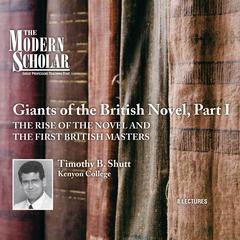 Play Audiobook Sample
Play Audiobook Sample
From Jesus to Christianity Audiobook
 Play Audiobook Sample
Play Audiobook Sample
Quick Stats About this Audiobook
Total Audiobook Chapters:
Longest Chapter Length:
Shortest Chapter Length:
Average Chapter Length:
Audiobooks by this Author:
Publisher Description
Entrusting the apostles to continue the work he had started by instructing them to "Go therefore and make disciples of all nations, baptizing them in the name of the Father, the Son and the Holy Spirit . . .," Jesus kindled the fires of a new religion in a world largely dominated by polytheism, cult leader worship, and mysticism. In the first century of its existence, Christianity was both welcomed and vilified throughout the Roman Empire. Many of Christianity's original adherents were martyred -murdered by those who believed it a danger to their authority or, at the very least, the cause of unrest among an otherwise docile populace. Christians themselves practiced their religion with great diversity, linked as much to local influences as theology. Political intrigue, theological beliefs, and simple misunderstandings created a need for dialogue between the many practitioners of the growing faith. Christianity's adoption as the official faith of the Roman state tied it inexorably to the fortunes of the Empire. This also helped to create a gulf between the two main theological branches of the religion, which remain to this day.
Download and start listening now!
From Jesus to Christianity Listener Reviews
- — Chris Botsaris, 6/16/2019
About Thomas F. Madden
Thomas F. Madden is professor of history and director of the Center for Medieval and Renaissance Studies at Saint Louis University. He is a widely recognized expert on the Crusades and Christian-Muslim relations and the author of numerous books, including The Fourth Crusade: The Conquest of Constantinople, Enrico Dandolo and the Rise of Venice, and Venice: A New History. Awards for his scholarship include the Haskins Medal and the Otto Gründler Prize. He resides in St. Louis, Missouri.



































